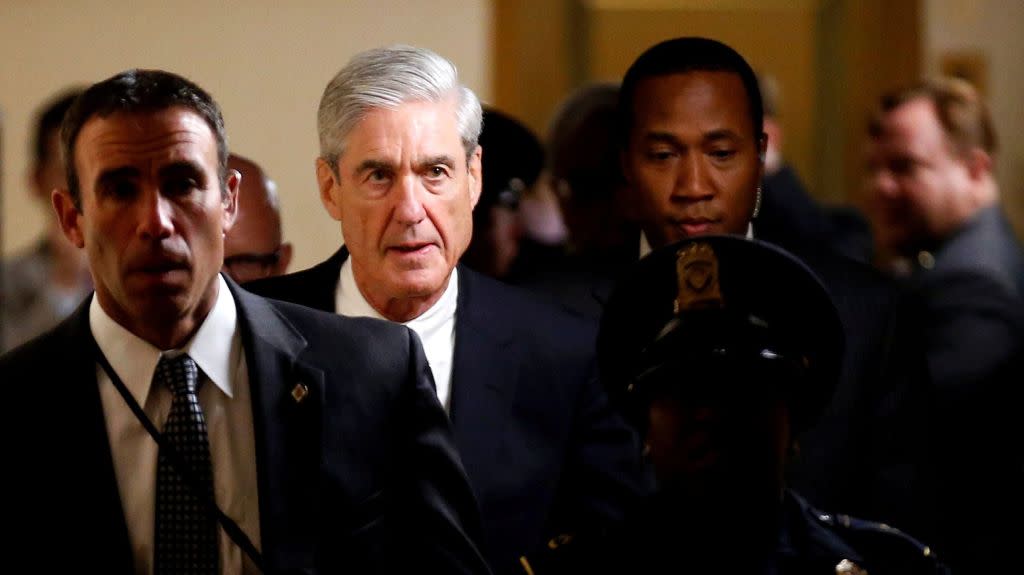Why Americans should hope the Mueller report is not definitive

Robert Mueller’s high-profile investigation into Russian meddling in the US 2016 election is over. Late Friday afternoon (Mar. 22), the special counsel delivered his long-awaited report to attorney general William Barr.
Americans counting on the Mueller report to find out whether Donald Trump has broken any laws or otherwise acted inappropriately will probably be disappointed—and there’s a chance the report won’t even be released to the public. (The report so far remains confidential.)
But that doesn’t mean Trump would be free and clear: Mueller’s special-counsel probe is but one of several ongoing investigations that promise to shed light on the president’s activities.
A limited Mueller report would provide oxygen to those other probes, including several at the US House now controlled by Democrats. Their findings are much more likely to settle the questions swirling around Trump.
And an inconclusive Mueller report that raises more questions would give House Democrats justification to continue their investigations. If Mueller releases a comprehensive report, it would become harder to argue that they need to deepen and expand those probes.
The limits on Mueller
There are at least seven serious investigations into Trump, his administration, his campaign and his businesses. The one carried out by Mueller has a potentially wide scope. The former FBI director was enlisted to investigate whether Russia interfered in the 2016 election in coordination with people tied to the Trump campaign. His team can also look into any other matters that come up and could be possibly criminal.
Unlike a traditional prosecutor, the special counsel has less leeway when it comes to determining what to do with what he finds out. Even if Mueller finds evidence Trump committed crimes, it won’t likely result in any immediate charges. Though legal scholars disagree on whether a sitting president can be indicted, the Department of Justice’s own guidelines forbid it. Barr, Mueller’s boss, has said he wouldn’t change the practice.
Barr will also decide whether to share the information with the public—so far, he’s been non-committal about releasing the whole document when asked. During his confirmation hearings, he said he would only release whatever is consistent with laws and regulations, which are up to his interpretation.
Other elements of the Justice Department looking into Trump’s affairs, including the US attorney for the Southern District of New York, have far more independence to select what to investigate and how aggressively to pursue it. Former prosecutors at that office told Politico they wouldn’t bar the possibility of attorneys there flaunting DOJ guidelines to indict the president, if the evidence warranted it.
Political probes
The House, currently controlled by Democrats, can look into whatever topics are relevant to its many committees. “The asterisk is that these investigations have very different purposes and very different constitutional roots,” says Peter Shane, a law professor at Ohio State University.
While federal and state prosecutors are looking into whether the law was broken, the process in Congress is political. Though the Democrats overseeing the investigations don’t have the power to charge Trump or his associates with a crime, they can draft new laws to hem the president in or—depending on the egregiousness of any misconduct they uncover—start the impeachment process.
Of course, Democrats only control half of Congress. The Republicans hold the Senate, where any impeachment trial would be held. And as elected officeholders, they are also subject to political pressure, as they’ve been already under. The president and his supporters call the House investigations “a witch hunt.”
….The Dems and their committees are going “nuts.” The Republicans never did this to President Obama, there would be no time left to run government. I hear other committee heads will do the same thing. Even stealing people who work at White House! A continuation of Witch Hunt!
— Donald J. Trump (@realDonaldTrump) February 7, 2019
And a new USA TODAY/Suffolk University Poll shows that the share of Americans who think Trump should be impeached is shrinking.
The Mueller report as a road map
The Mueller probe could also act as a guide for lawmakers—as well as other investigators—of where to dig deeper, or suggest new areas to look into. Neal Katyal, acting US solicitor general under Barack Obama, called it a “road map” in a New York Times op-ed: “A short Mueller report would market the end of the beginning, not the beginning of the end.”
Though each probe is independent, the House and the criminal investigations can bolster each other. Lying to Congress can be prosecuted by the Justice Department. In fact, Mueller charged Michael Cohen, Trump’s former personal lawyer, of doing that. Cohen pleaded guilty. Prosecutors could also use public testimony collected in congressional hearings to build their cases.
All of this activity increases the chances that the public with learn the truth in the end, even if it’s months or years from now. “That’s what checks and balances are about,” said Shane, the law professor.
This story was updated at 5:20pm Mar. 22 after special counsel Robert Mueller turned in his report to attorney general William Barr.
Sign up for the Quartz Daily Brief, our free daily newsletter with the world’s most important and interesting news.
More stories from Quartz:

